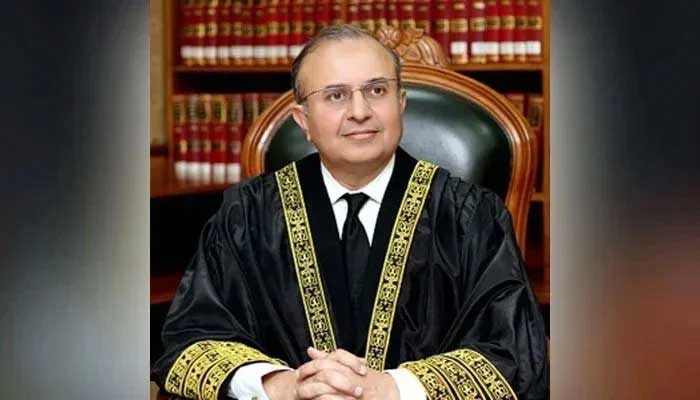ISLAMABAD: Supreme Court’s senior puisne judge Justice Mansoor Ali Shah has expressed concern over the proceedings of the Judicial Commission of Pakistan (JCP) in the absence of its rules, saying that the recently-enacted 26th Constitutional Amendment has “fundamentally disturbed the vital balance in the appointments process of the judges in Pakistan”.
“The judiciary has enjoyed primacy in the appointment process of the judges in Pakistan, however, this vital balance has been fundamentally disturbed under the amendment, which now grants a majority to the executive in the commission,” he said in a letter to Justice Jamal Khan Mandokhail — who heads the five-member committee designated to draft the rules.
Last week, Justice Shah — in a letter to the chief justice — sought the postponement of the JCP meeting, as numerous petitions challenging the 26th Constitutional Amendment were still pending before the apex court. However, CJP Yahya Afridi made it clear that the commission did not have the scope to discuss the 26th Constitutional Amendment.
In his letter today, the senior puisne judge cited Clause (4) of Article 175A of the Constitution, which mandates the Commission to make its rules of procedure, “including the procedure and criteria for assessment, evaluation and fitness for appointment of Judges”.
“In the absence of such rules, any proceedings undertaken by the Commission for the appointment of Judges would be unconstitutional,” he maintained.
Justice Shah noted that the “unprecedented shift” in the composition of the JCP poses grave risks, including the potential for “political appointments and the packing of courts with judges lacking an ideological commitment to the rule of law.”
“Any appointments made without a well-defined and transparent framework of rules will undermine public confidence in the judiciary, compromise its independence, and erode its ability to function as a neutral arbiter of justice,” reads the letter.
He emphasised that the selection and appointment of judges must be “structured and well-reasoned and never be left vulnerable to arbitrary or politically motivated decisions”.
In these circumstances, the judge said, it becomes imperative that well-thought-out rules are framed that provide the necessary filters to select the best of the best, thereby safeguarding judicial independence and ensuring merit-based selections.
He also expressed regret that Pakistan’s judiciary was passing through one of its weakest moments in history, and the risks of executive overreach were higher than ever.
“The absence of robust rules and criteria will allow outside influence to undermine the judiciary by facilitating appointments that serve partisan interests rather than upholding constitutional values,” he added.
Therefore, the judge said, it is critical that no appointment to the constitutional courts proceeds until these rules are finalised and adopted by the JCP. “Any hurriedness in the matter by the JCP can seriously undermine and weaken the judiciary for years to come.”











